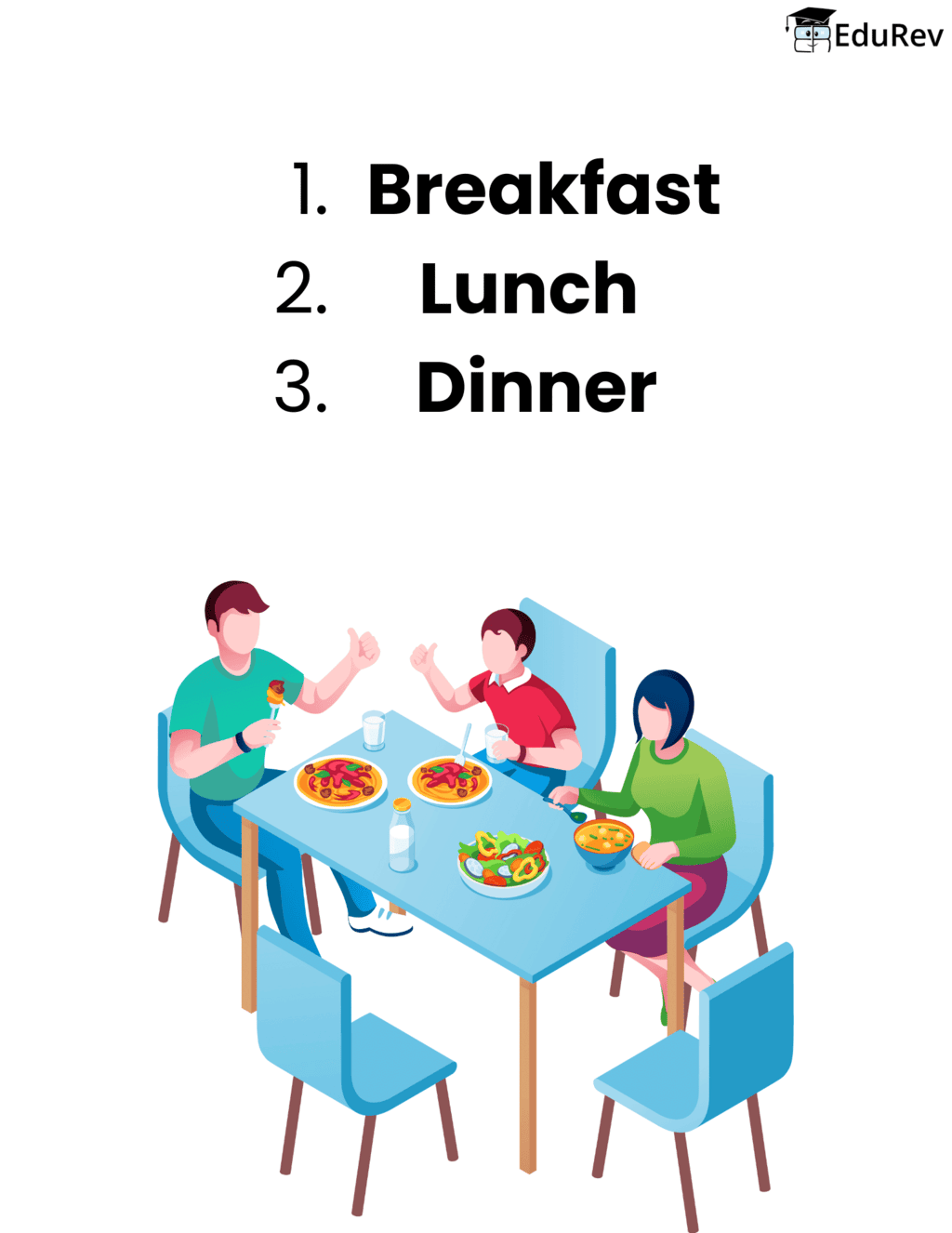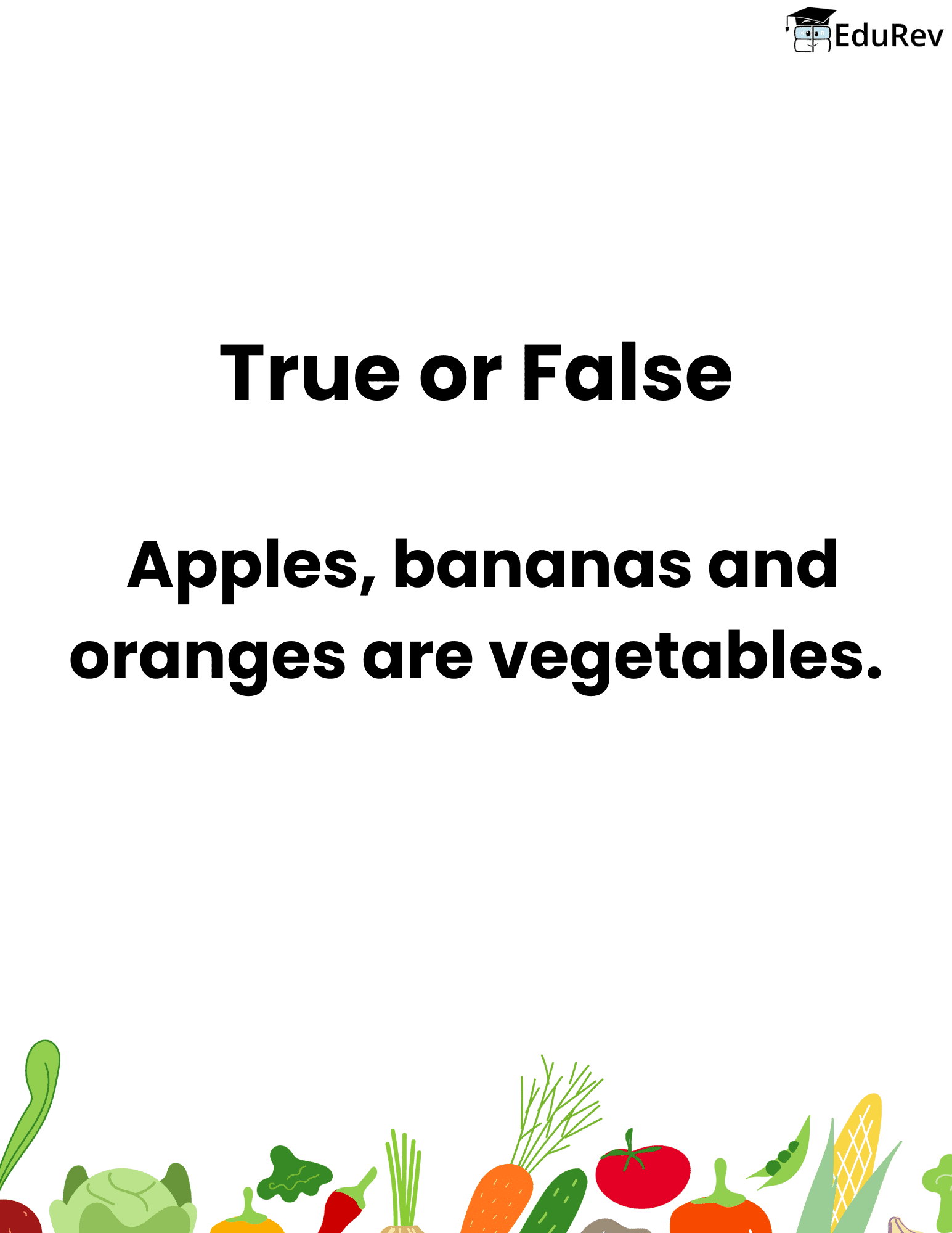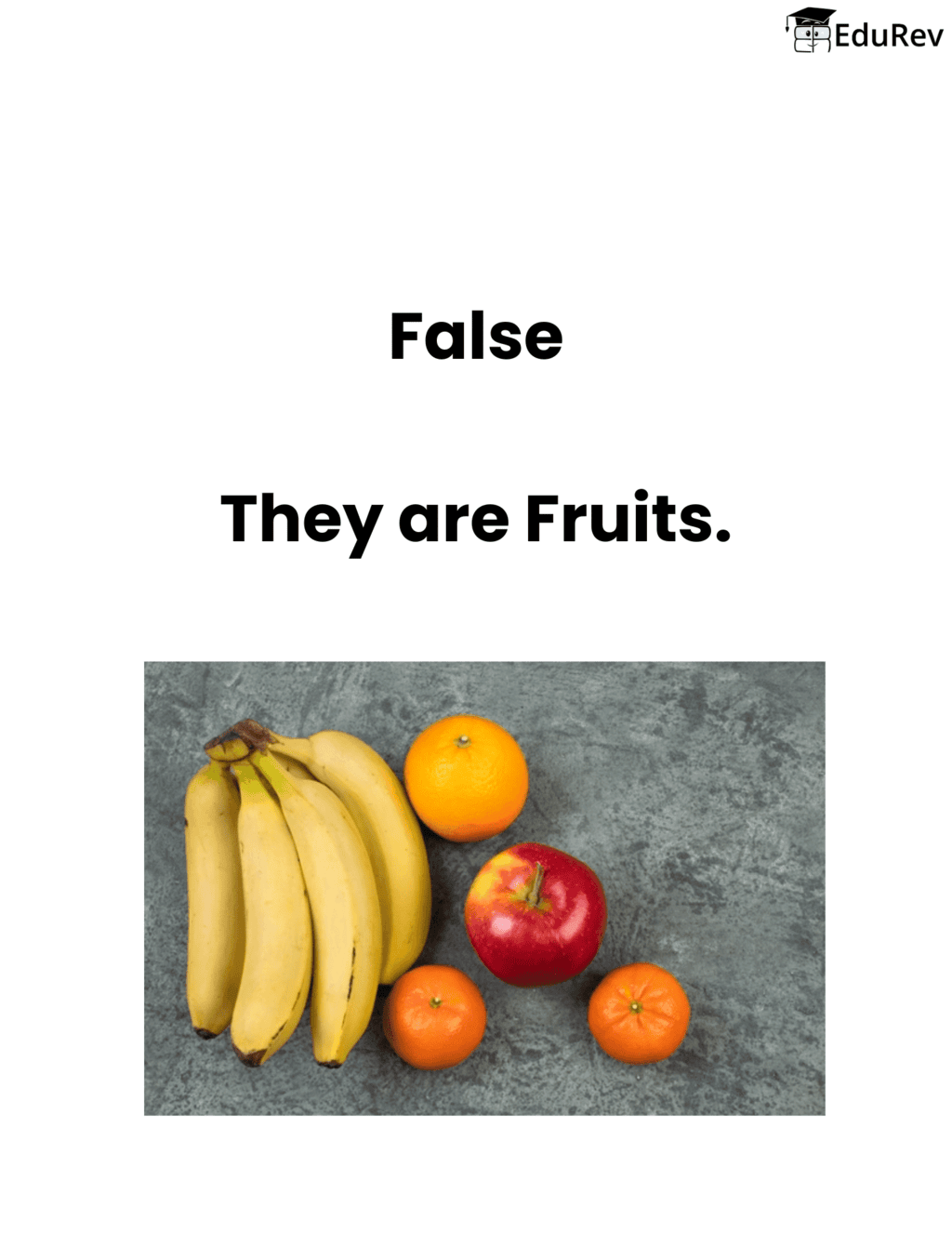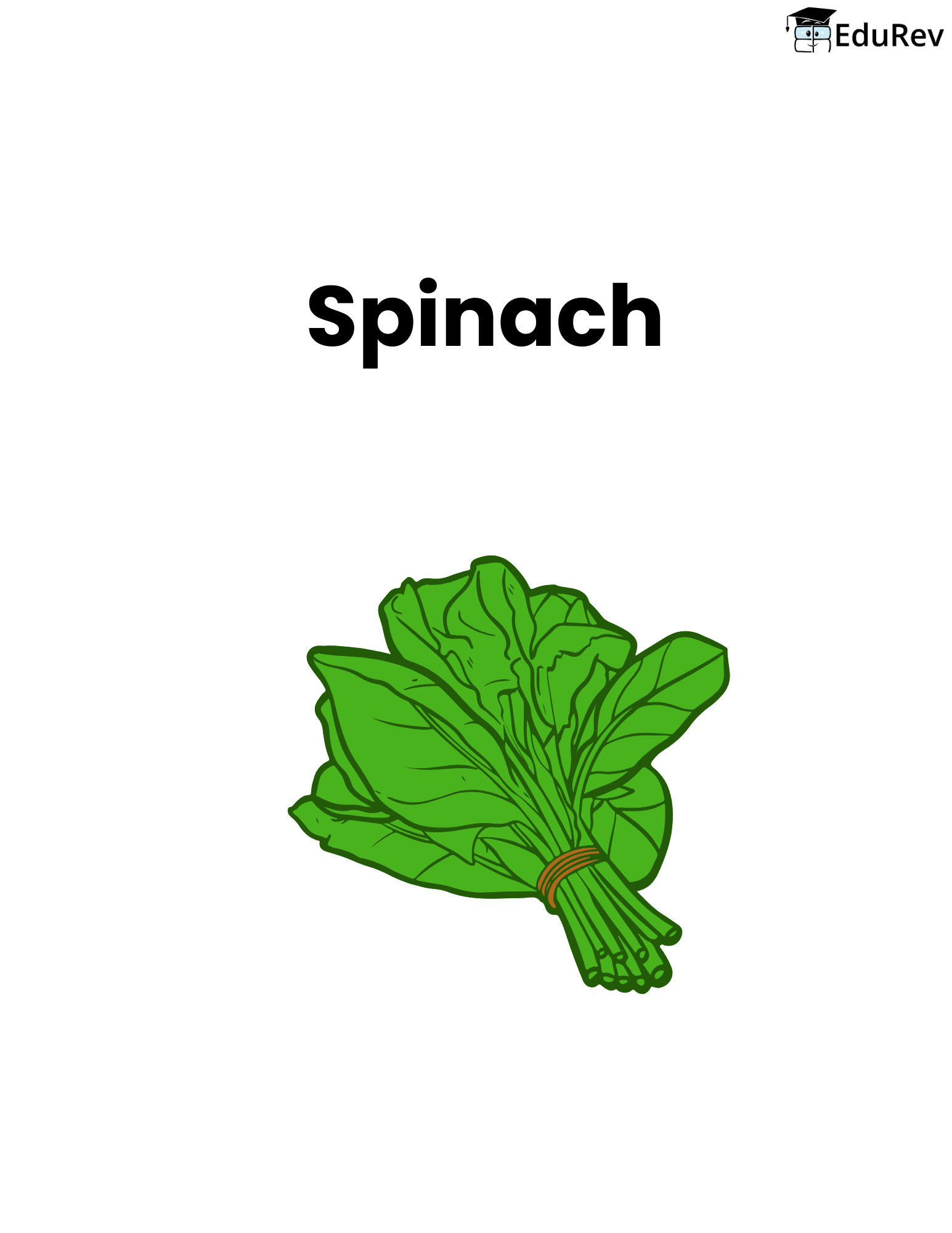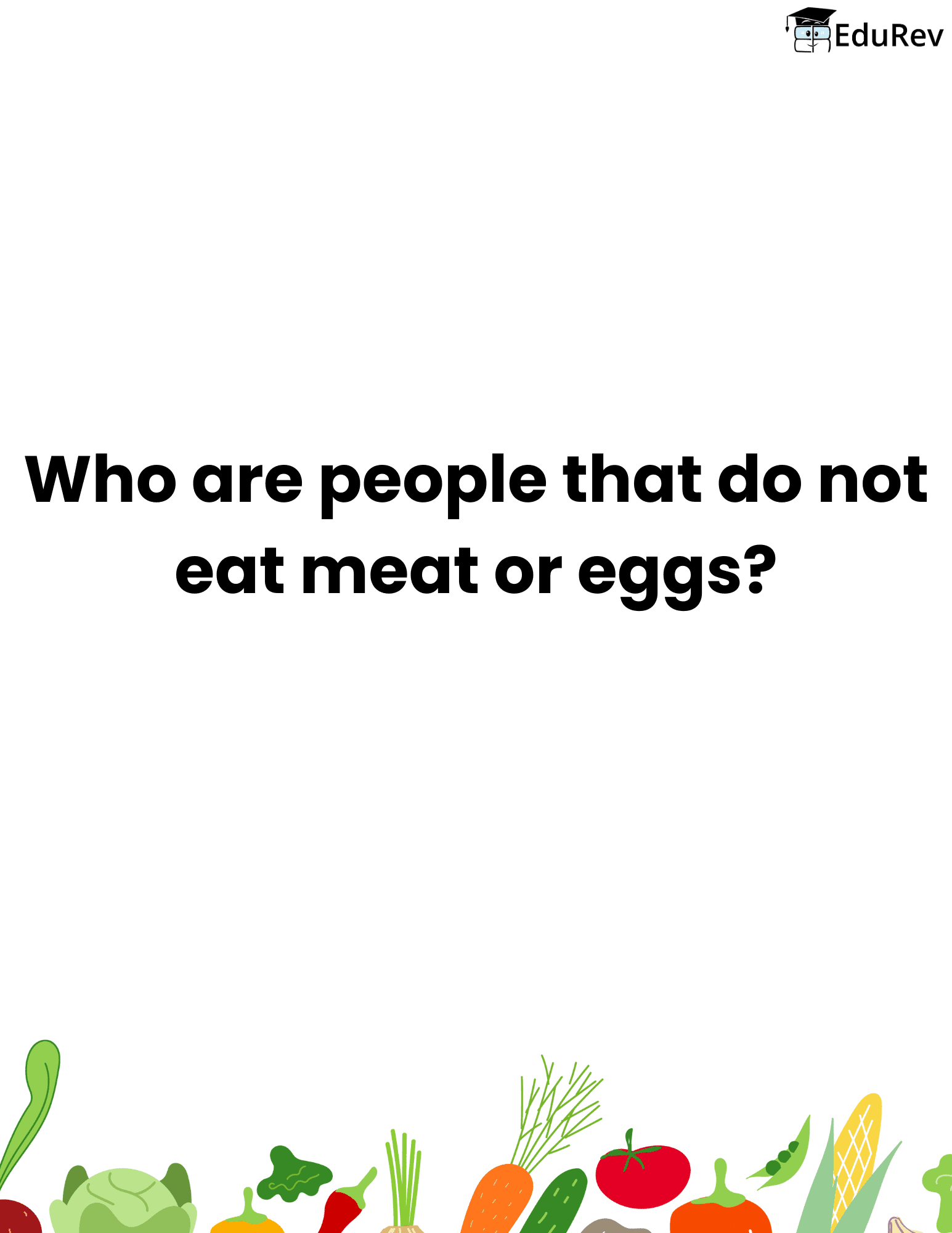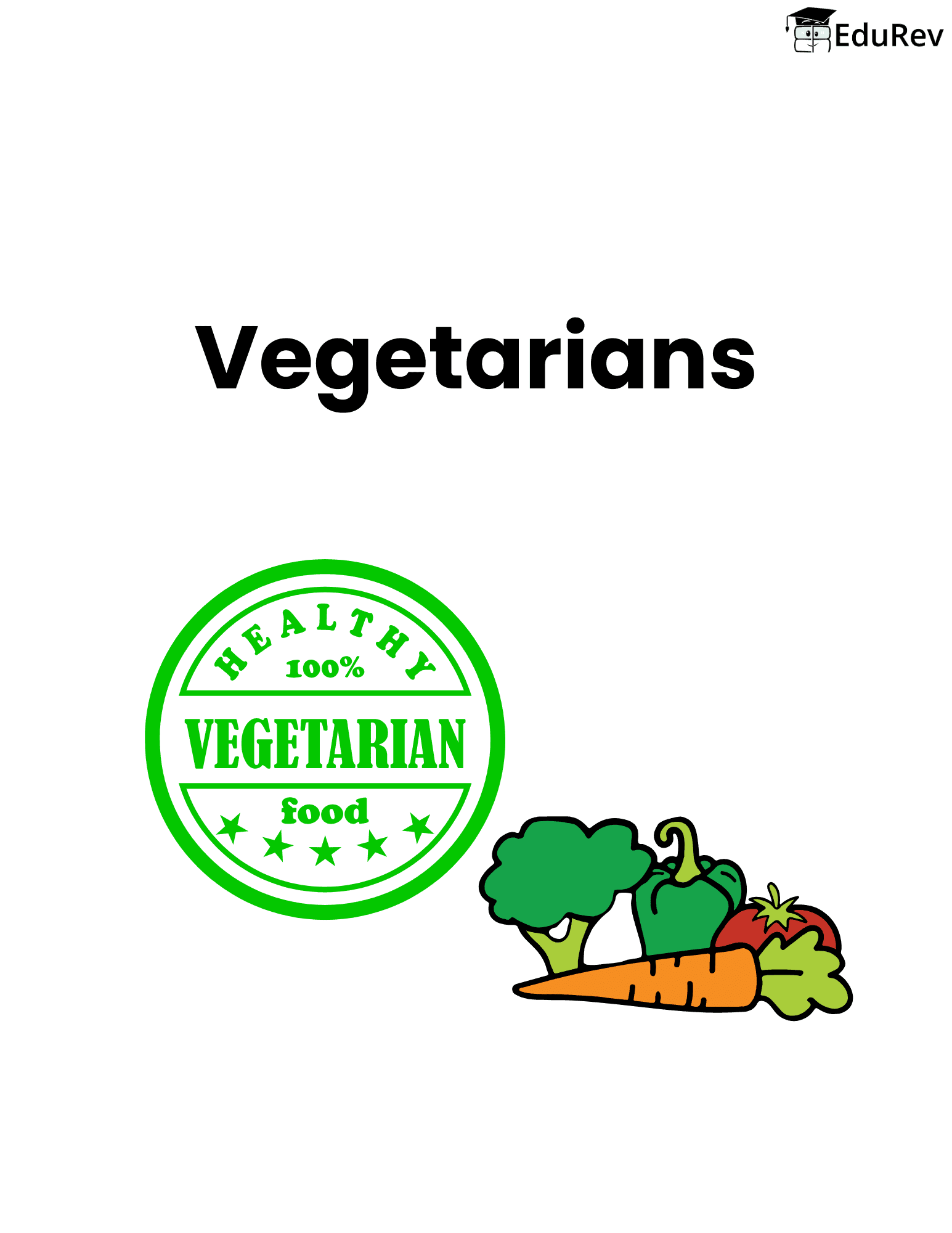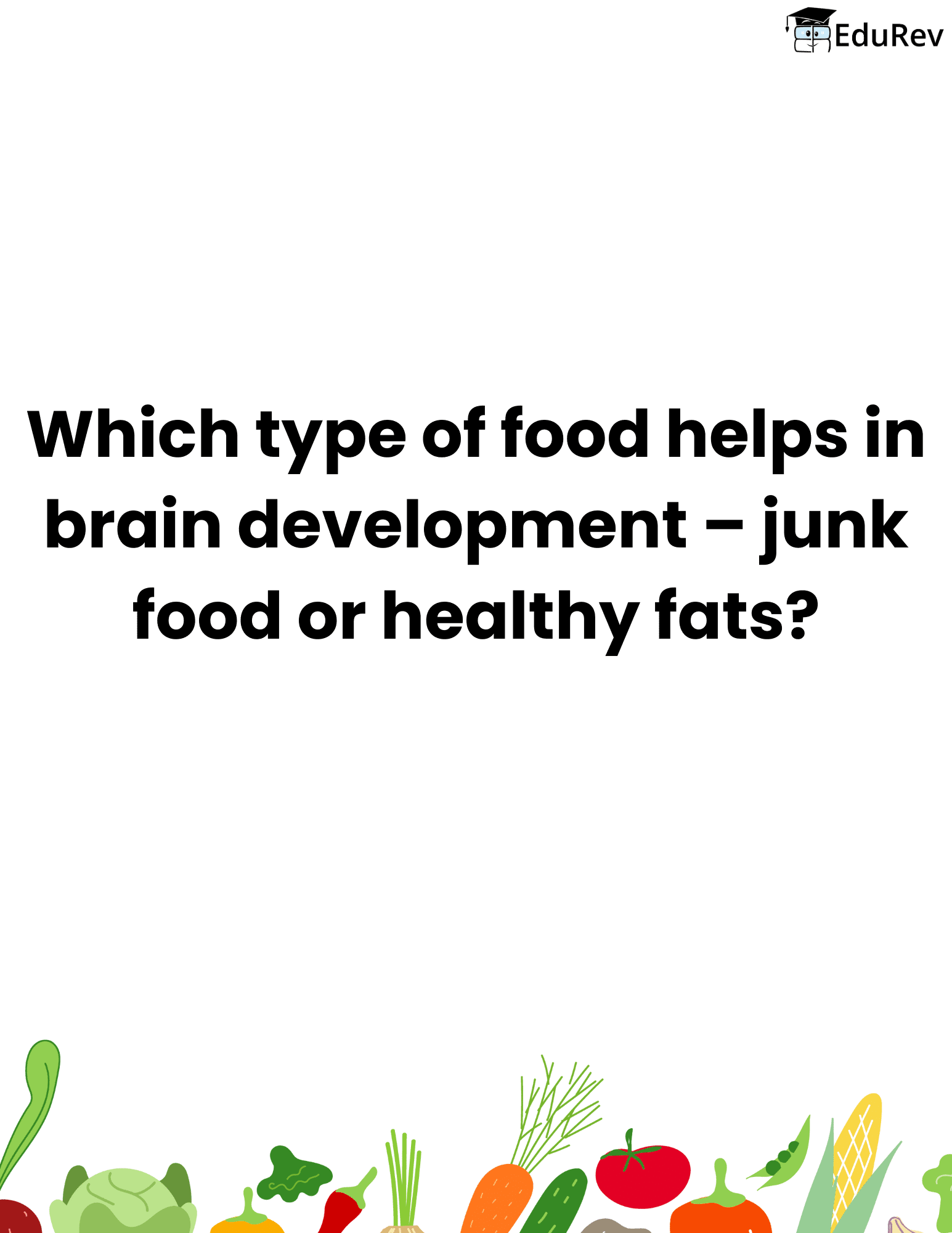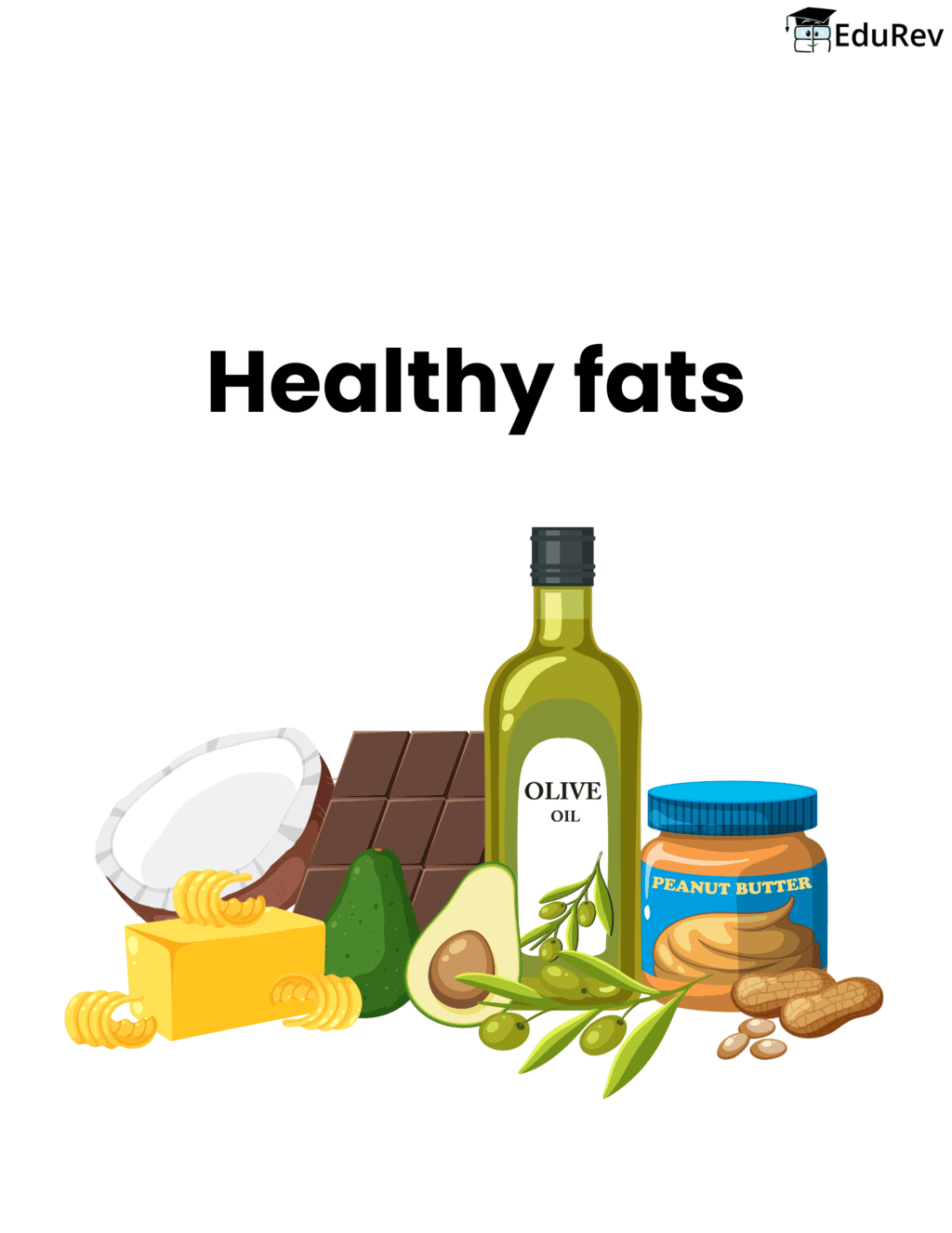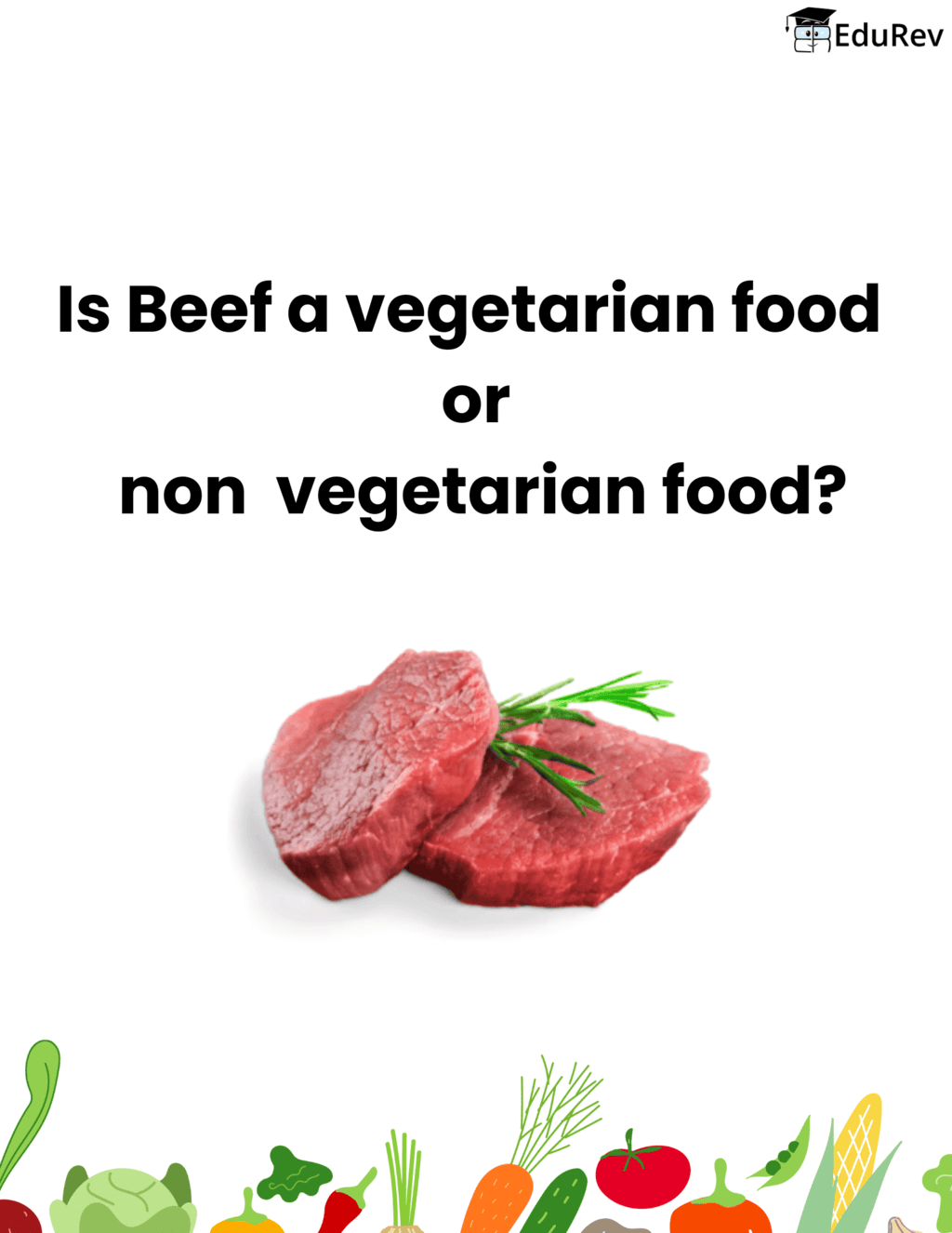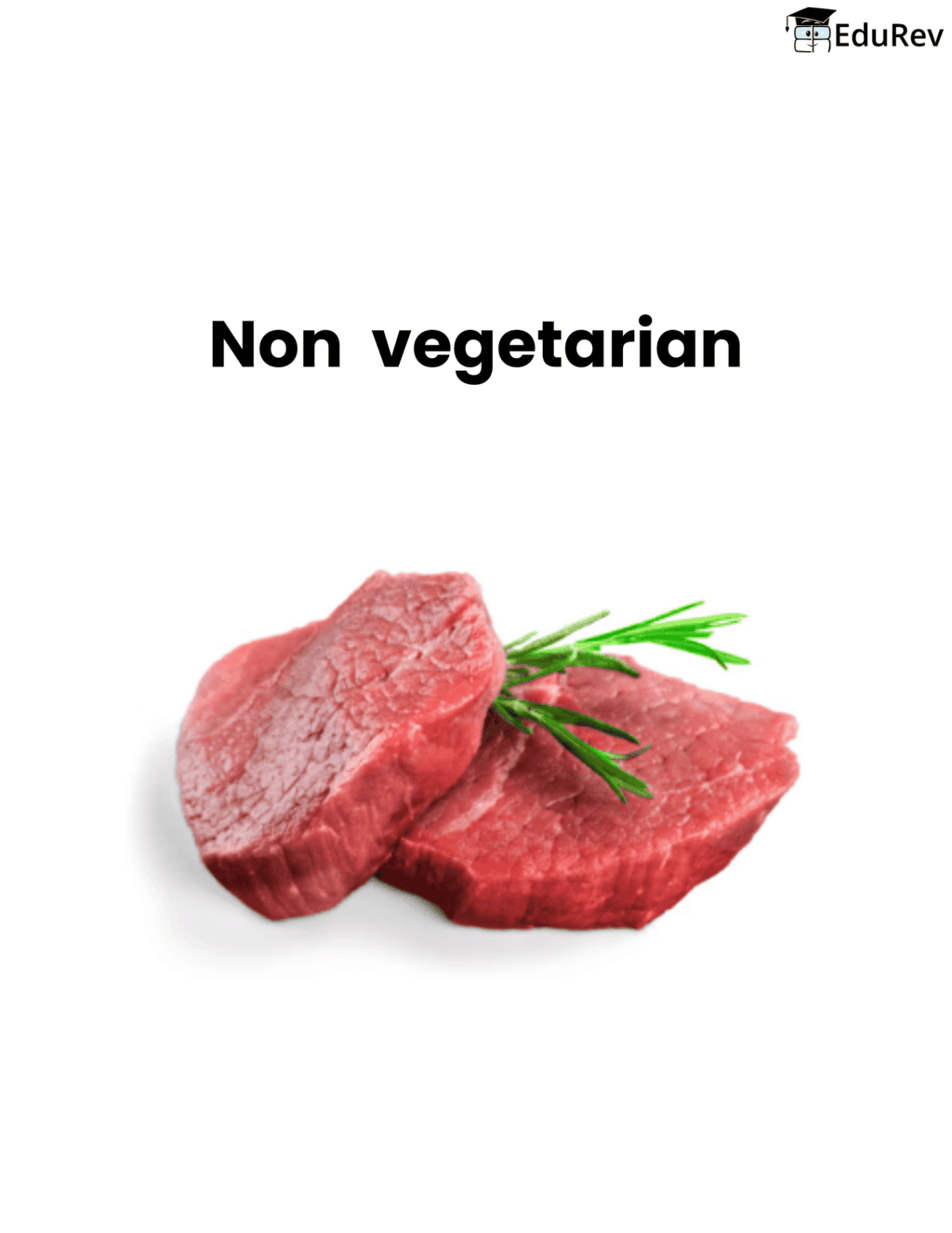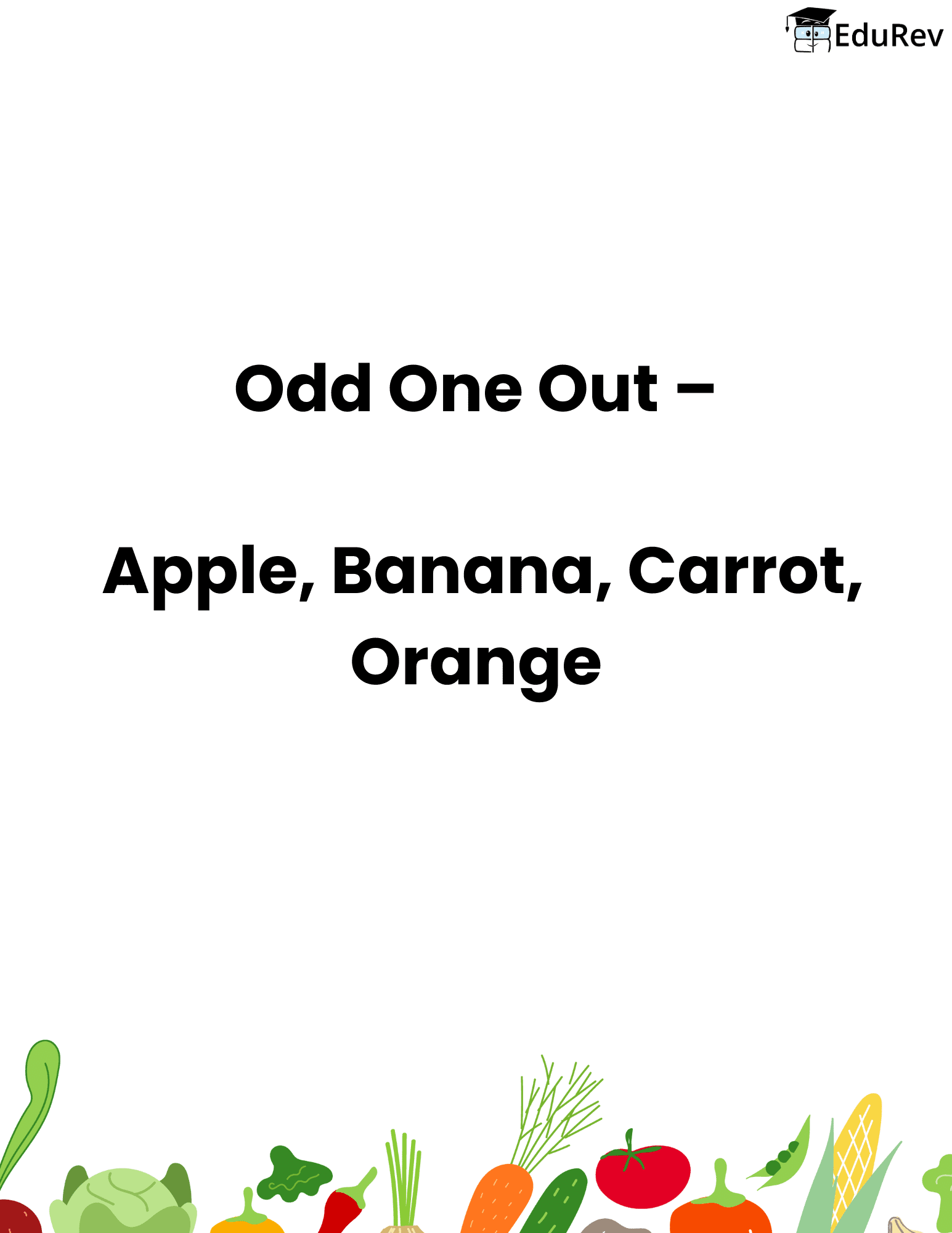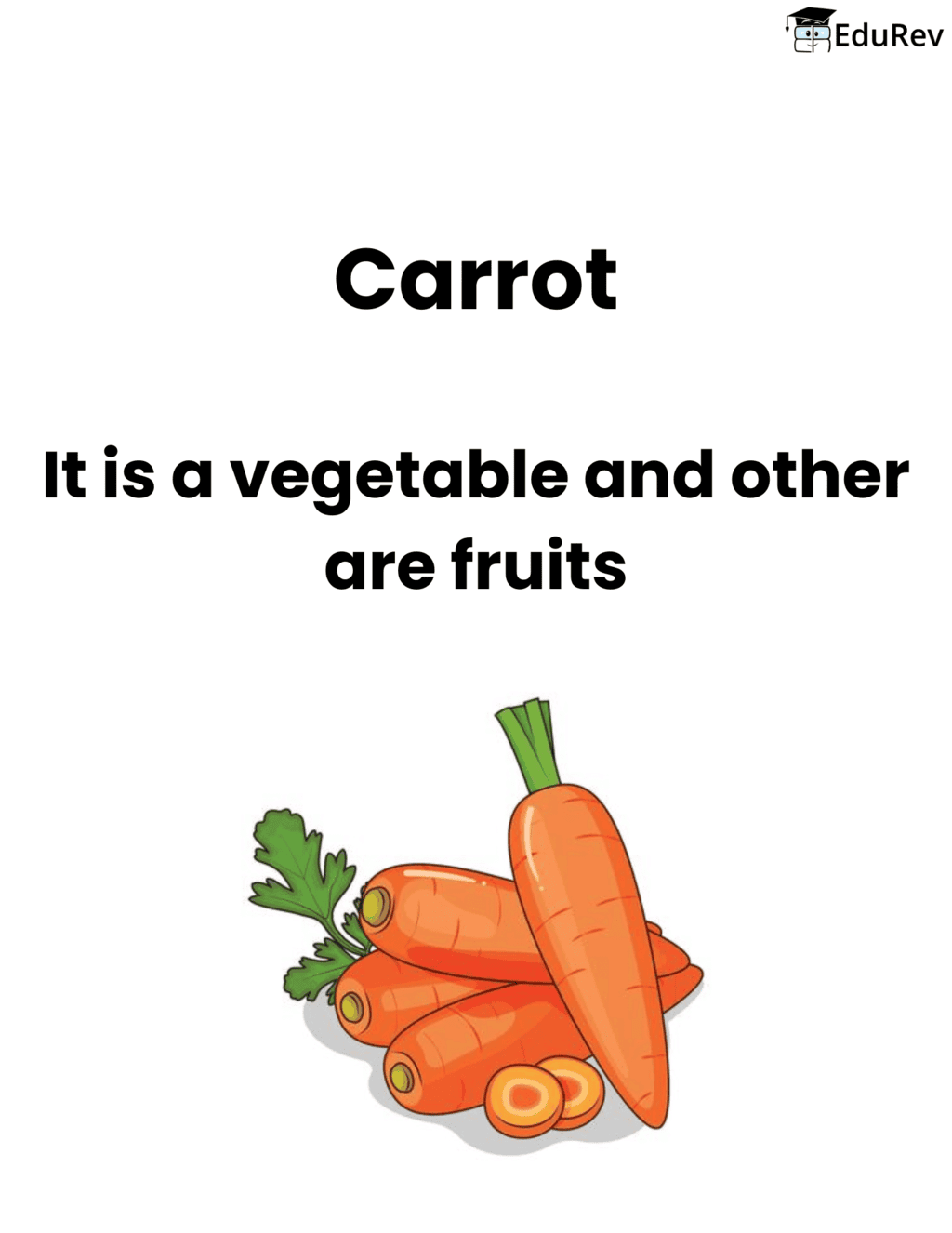 Unlock all Flashcards with EduRev Infinity Plan Starting from @ ₹99 only
|
Class 1 Exam > Science Olympiad for Class 1 > Flashcards: Food we Eat
|
33 videos|90 docs|61 tests
|
FAQs on Flashcards: Food we Eat Flashcard - Science Olympiad for Class 1
| 1. What are the main differences between vegetarian and non-vegetarian diets? |  |
Ans.Vegetarian diets exclude meat, poultry, and fish, focusing on plant-based foods such as vegetables, fruits, grains, nuts, and seeds. Non-vegetarian diets include these animal products, providing different sources of protein and nutrients. This distinction affects nutritional intake, environmental impact, and ethical considerations regarding animal welfare.
| 2. What are the health benefits of following a vegetarian diet? |  |
Ans.A vegetarian diet is often associated with lower risks of heart disease, hypertension, type 2 diabetes, and certain cancers. It typically includes high amounts of fiber, vitamins, and antioxidants, which contribute to overall health. Additionally, vegetarians may have lower cholesterol levels and healthier body weights due to the consumption of whole, plant-based foods.
| 3. Can a vegetarian diet provide all necessary nutrients? |  |
Ans.Yes, a well-planned vegetarian diet can provide all essential nutrients, including protein, iron, calcium, and vitamin B₁₂. It is important for vegetarians to include a variety of foods, such as legumes, nuts, dairy products (if lacto-vegetarian), and fortified foods to meet their nutritional needs. Consulting a nutritionist can help ensure a balanced intake.
| 4. How do cultural beliefs influence vegetarianism and non-vegetarianism? |  |
Ans.Cultural beliefs play a significant role in dietary choices. Many religions advocate for vegetarianism as a form of non-violence and respect for life, such as Hinduism and Buddhism. In contrast, other cultures may embrace non-vegetarian diets due to traditions, availability of resources, or culinary practices. These beliefs shape individual and collective food choices across different societies.
| 5. What are some common misconceptions about vegetarian diets? |  |
Ans.Common misconceptions include the belief that vegetarian diets lack protein, are expensive, or are difficult to follow. In reality, many plant-based foods are rich in protein, such as beans, lentils, and tofu. Additionally, vegetarian diets can be economical and accessible, with a wide variety of affordable ingredients available. Awareness and education can help dispel these myths.
Related Searches






